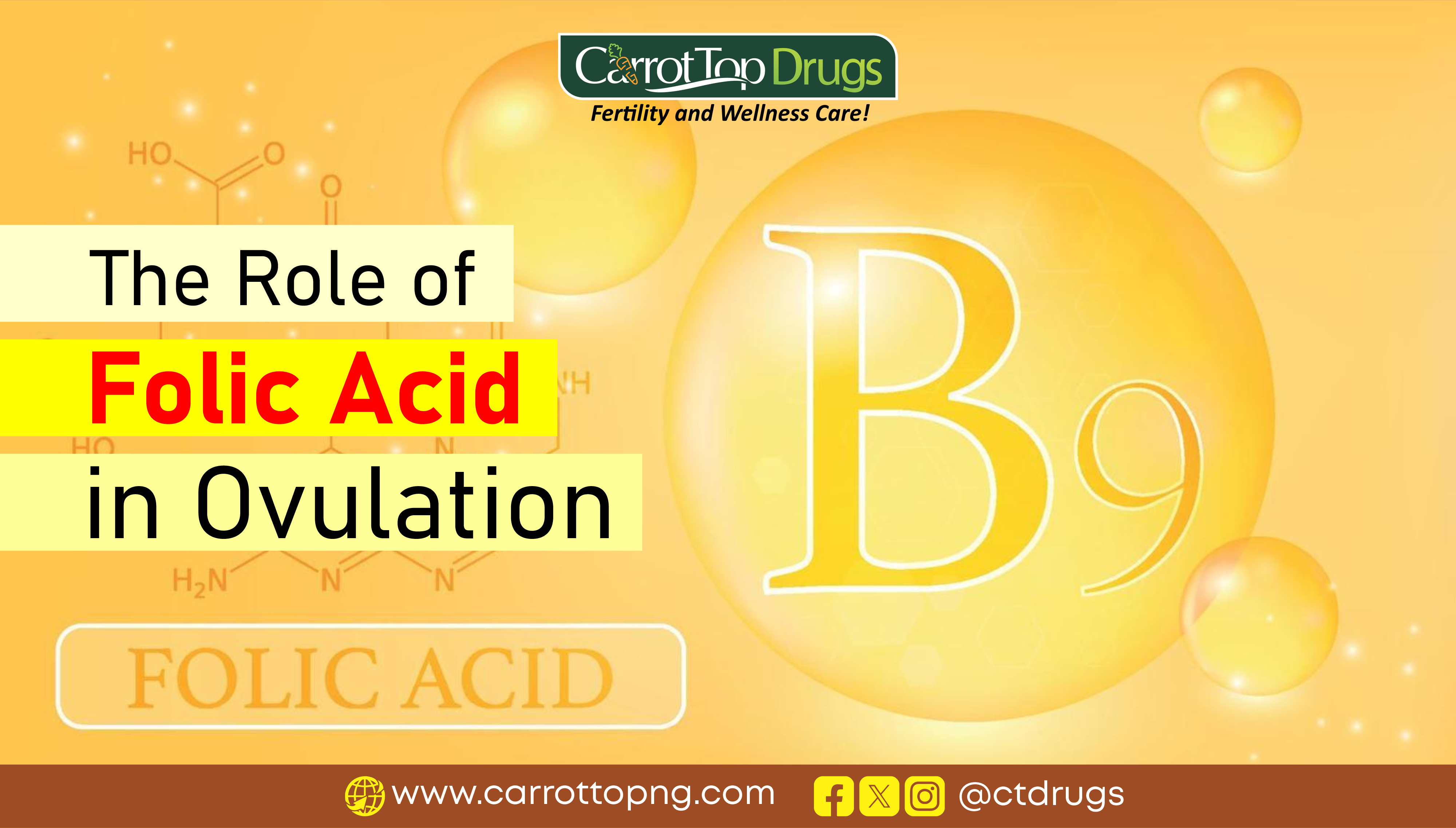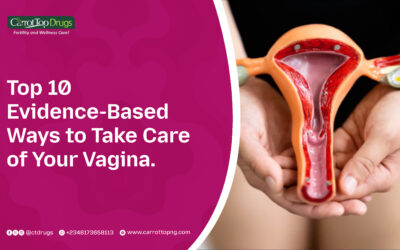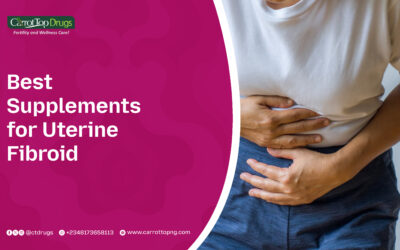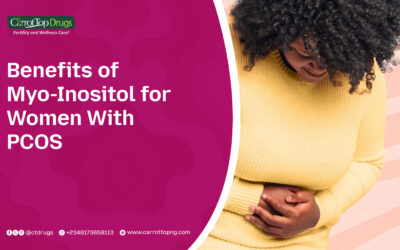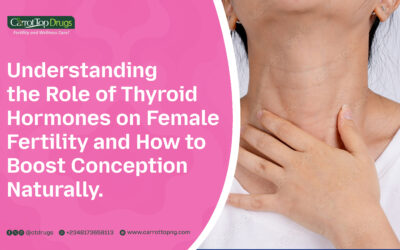Introduction
Folic acid, a vital nutrient known for its multifaceted roles in the body, plays a significant role in ovulation, the pivotal process in female reproductive health. In this article, we explore the role of folic acid in ovulation, shedding light on how this essential vitamin influences the female fertility cycle.
What is Folic Acid?
Folic acid is the synthetic form of folate, which is a naturally occurring B vitamin. It is commonly used in dietary supplements and fortified foods due to its stability and bioavailability. Folic acid is converted into its active form, tetrahydrofolate, in the body, where it participates in numerous metabolic processes.
Importance of Folic Acid in the Body
1. Cell Division: Folic acid is essential for the synthesis of nucleic acids, which are the building blocks of DNA and RNA. Therefore, it plays a critical role in cell division and growth, particularly during periods of rapid development, such as pregnancy and infancy.
2. DNA Synthesis and Repair: Folic acid is necessary for the production and repair of DNA, the genetic material found in every cell of the body. Adequate folic acid levels are essential for maintaining genomic integrity and preventing DNA damage.
3. Red Blood Cell Formation: Folic acid is involved in the synthesis of red blood cells, which are responsible for transporting oxygen throughout the body. Deficiency in folic acid can lead to megaloblastic anemia, characterized by abnormally large and immature red blood cells.
4. Neurological Development: Folic acid plays a crucial role in neurological development, particularly during fetal development. Adequate folic acid intake is essential for preventing neural tube defects, such as spina bifida, in newborns.
5. Homocysteine Metabolism: Folic acid is involved in the metabolism of homocysteine, an amino acid associated with an increased risk of cardiovascular disease. Adequate folic acid intake helps lower homocysteine levels, thereby reducing the risk of heart disease and stroke.
Understanding Ovulation
Definition of Ovulation
Ovulation is the culmination of a series of intricate hormonal processes that occur within the female body. It involves the rupture of a mature ovarian follicle, releasing a mature egg (ovum) into the fallopian tube. Once released, the egg is viable for fertilization for about 12 to 24 hours. If fertilization does not occur during this window, the egg disintegrates, and the menstrual cycle proceeds to its next phase.
The Role of Hormones in Ovulation
Ovulation is regulated by a delicate interplay of hormones, orchestrated by the hypothalamus, pituitary gland, and ovaries. Two primary hormones, follicle-stimulating hormone (FSH) and luteinizing hormone (LH), play key roles in the ovulatory process.
Follicle-Stimulating Hormone (FSH): At the beginning of the menstrual cycle, FSH stimulates the growth and development of ovarian follicles, each of which contains an immature egg. As follicular development progresses, FSH levels gradually decline, allowing one dominant follicle to continue growing.
Luteinizing Hormone (LH): As the dominant follicle matures, it produces increasing levels of estrogen, which feedback to the pituitary gland, triggering a surge in LH secretion. This surge in LH, known as the LH surge, triggers ovulation, causing the mature follicle to rupture and release the egg into the fallopian tube.
In addition to FSH and LH, other hormones, such as estrogen and progesterone, also play essential roles in ovulation. Estrogen levels rise during the follicular phase of the menstrual cycle, promoting the growth and development of the uterine lining. Progesterone levels increase during the luteal phase, following ovulation, to prepare the uterus for possible implantation of a fertilized egg.
Link Between Folic Acid and Ovulation
Scientific evidence suggests a compelling link between folic acid and ovulation, highlighting the importance of this essential vitamin in female reproductive health. Several studies have explored the relationship between folic acid levels and ovulatory function, shedding light on the potential mechanisms by which folic acid influences the ovulation process.
Scientific Studies on Folic Acid and Ovulation
Numerous studies have investigated the role of folic acid in ovulation and female fertility. For example, a study published in the “Journal of Clinical Endocrinology and Metabolism” examined the association between dietary folate intake and ovulatory infertility in a cohort of women. The researchers found that higher dietary folate intake was associated with a reduced risk of ovulatory infertility, suggesting a protective effect of folic acid on ovulatory function (Chavarro et al., 2008).
Similarly, another study published in the “American Journal of Epidemiology” explored the relationship between blood folate levels and ovulatory infertility among women undergoing fertility treatment. The researchers observed that women with higher blood folate levels were more likely to achieve ovulation and conceive compared to those with lower folate levels (Gaskins et al., 2014).
Mechanisms Behind Folic Acid’s Effect on Ovulation
The precise mechanisms underlying the role of folic acid in ovulation are still being elucidated. However, several potential mechanisms have been proposed based on experimental and observational studies.
One proposed mechanism involves folic acid’s role in DNA synthesis and methylation. Folic acid is essential for the production of methyl groups, which are critical for regulating gene expression and maintaining genomic integrity. Adequate folic acid levels may promote proper DNA synthesis and repair within the ovarian follicles, thereby supporting optimal follicular development and ovulation.
Additionally, folic acid may influence hormonal balance and ovarian function through its interactions with homocysteine metabolism. Elevated levels of homocysteine, a sulfur-containing amino acid, have been associated with impaired ovarian function and reduced fertility. Folic acid helps metabolize homocysteine into methionine, a process that may contribute to improved ovarian function and ovulatory capacity.
Furthermore, folic acid may exert indirect effects on ovulation by improving overall reproductive health and reducing inflammation. According to a research by Orisaka et al., chronic inflammation has been linked to ovulatory dysfunction and infertility. Folic acid, with its anti-inflammatory properties, may help alleviate inflammation within the reproductive organs, thereby promoting normal ovulatory function.
Folic Acid and Female Fertility
The role of folic acid in ovulation extends beyond its influence on the ovulatory process itself; it also plays a significant role in female fertility. Adequate folic acid levels are essential for supporting overall reproductive health in women. Research suggests that folic acid may contribute to the regulation of menstrual cycles, hormone balance, and the development of healthy ovarian follicles, all of which are critical factors for successful conception.
Folic Acid’s Impact on Female Reproductive Health
Folic acid exerts a multifaceted impact on female reproductive health, encompassing various aspects beyond ovulation.
Maturation of Healthy Eggs
One of its primary roles is in promoting the development of healthy eggs within the ovaries. Folic acid supports the maturation of ovarian follicles, ensuring that they reach optimal quality for ovulation.
Hormone Balance
Additionally, folic acid contributes to the maintenance of hormonal balance, particularly estrogen and progesterone, which are essential for regulating the menstrual cycle and supporting fertility.
Improving Ovulation with Folic Acid Supplementation
Supplementing with folic acid has been shown to offer benefits for women experiencing ovulatory dysfunction or irregular menstrual cycles. By providing the body with adequate levels of this essential nutrient, folic acid supplementation can help regulate the menstrual cycle, promote the development of healthy ovarian follicles, and facilitate timely ovulation. Furthermore, folic acid may enhance the quality of the uterine lining, creating a more favorable environment for implantation and pregnancy.
In addition to its direct effects on ovulation and reproductive health, folic acid supplementation may also address underlying factors that contribute to fertility challenges. For example, folic acid’s role in DNA synthesis and methylation may help mitigate oxidative stress and inflammation, both of which can negatively impact fertility. By reducing these underlying sources of reproductive dysfunction, folic acid supplementation can improve the likelihood of successful conception and pregnancy.
Folic acid supplementation offers a safe and effective approach for enhancing ovulatory function and improving female fertility. It could be used alone or in conjunction with other fertility treatments, such as ovulation induction medications. It can play a valuable role in optimizing ovulation and supporting reproductive health in women. Evergreen Formular for Women contains the daily requirement of folic acid for women. It also contains antioxidants, zinc, vitamin D, and vitex to boost the fertility of women. Evergreen Folic Acid + Vitamin B12 also contains the daily requirement of folic acid for women.
Recommended Dosage of Folic Acid for Women
Ensuring adequate folic acid intake is crucial for women of childbearing age, particularly those planning to conceive or who are pregnant. The recommended dosage of folic acid for women varies depending on their specific health needs and reproductive status. However, general guidelines recommend a daily intake of 400 micrograms (mcg) of folic acid for women of childbearing age who are not pregnant. During pregnancy, the recommended dosage increases to 600 mcg per day to support fetal development and prevent neural tube defects.
Conclusion
In conclusion, the role of folic acid in ovulation is a crucial aspect of female reproductive health and fertility. Adequate intake of folic acid is essential for supporting ovulatory function, promoting healthy pregnancy outcomes, and preventing birth defects. Beyond its role in ovulation, folic acid contributes to overall health and well-being, supporting cardiovascular health, cognitive function, and immune function. By incorporating natural food sources rich in folic acid into the diet and considering supplementation when necessary, individuals can optimize their folic acid intake and support optimal reproductive and overall health.
FAQs
Q. Is folic acid supplementation necessary for women who are not planning to become pregnant?
A. Folic acid benefits overall health. Consult a healthcare provider before starting supplements.
Q. Can men benefit from folic acid supplementation?
A. Yes, it may improve sperm quality and reproductive function.
Q. Are there any side effects associated with folic acid supplementation?
A. Generally safe when taken as directed. Consult if concerned about interactions.
Q. Can I get enough folic acid from my diet alone?
A. Possible, but some may need supplements, especially before pregnancy.
Q. When is the best time to start taking folic acid if I’m planning to become pregnant?
A. Start at least a month before conception and continue during the first trimester.

